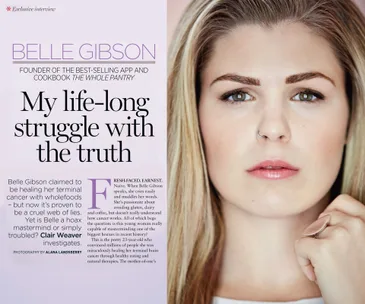Clair Weaver didn’t begin her career in a newsroom.
At 19, she was working as a flight attendant, flying long-haul and figuring out what came next. “It was a lot of fun,” she recalled.
But she already knew where she wanted to end up – journalism. Weaver studied remotely through the UK’s National Council for the Training of Journalists and landed her first reporting job at a local Hertfordshire paper.
From covering school fetes and council meetings, she moved into grittier stories at the Watford Observer, before breaking into the Evening Standard.
“It was very busy. We churned out five editions a day, and I learned a lot there,” she told Mediaweek’s Newsmakers.
Now, Weaver leads LiSTNR’s news, crime and documentary podcast pillar, overseeing a slate of original investigative audio that has made LiSTNR the country’s leading factual podcast network.
The most recent Triton Australia Podcast Ranker shows the appeal of her patch – with more than a dozen true crime titles in the top 120, cases like Erin Patterson and the mushroom murders are sparking national conversations.
The persistence test
Weaver says investigative work often boils down to sheer persistence.
“When you’re, when you’re trying to get a story, you’ve just gotta sometimes be really dogged and just keep going. Keep ringing people, even if everyone’s saying no, even if people are closing doors in your faces, you just keep going and be nice about it,” she said.
That same persistence, she says, is key for young reporters trying to break into the industry: “Try and broaden your network. Whatever it is, just try to get your foot in the door and then give it your all.”
It’s a mindset that has shaped her own approach.
“As an investigative reporter I loved going down rabbit holes and getting obsessed with details. Give me a massive data set and I’m happy just spending ages combing through it,” she laughed.
Remembering victims
Weaver is clear about the responsibility that comes with telling crime stories. “I think that’s a really important point, especially with covering crime, that you remember it’s not entertainment,” she said.
For Weaver, the danger is when true crime forgets that real people are at the centre of the story.
“ I think it’s important to remember that these are real people are involved. Most of the time real people have been harmed or even have even died. So it’s absolutely legitimate to tell these stories, but we must remember to humanise them,” she said.
She believes responsible reporting can surface lessons – whether in corruption cases or domestic violence.
Weaver explained: “It’s good to understand how these things, how the crime has happened. You often will learn lessons, whether it’s say for domestic violence, covering those stories can help us understand what those warning signs might be. But we just have to remember to do it responsibly, and ethically, and I think that’s something we always keep in mind here at LiSTNR.”

Clair Weaver’s interview with Belle Gibson in the Australian Women’s Weekly.
Why LiSTNR invests in longform
Weaver is proud of the space LiSTNR has carved out in factual storytelling.
“I feel really, really lucky to work somewhere like LiSTNR. We are one of the few Australian networks investing in this kind of long form narrative storytelling,” she said.
The focus is on finding Australian stories that carry both local detail and bigger truths: “One of our points of differences is that we are looking for Australian stories, or at least a very strong element to the Australian part of the story.”
That means investigative work is often central to the pitch.
“We’re looking to take that story to the next level and expose something that needs to be exposed, as well as telling a really compelling narrative story as part of the process,” she said.
Clair Weaver’s full conversation, including her reflections on covering major Australian stories like the Belle Gibson scandal, features in this week’s Newsmakers podcast. You can listen wherever you get your podcast fix.
